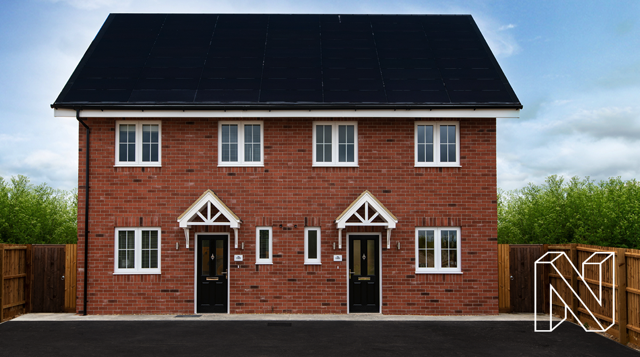Will an Upgrade on Social Housing Lead The Way For Net-Zero?

The government have promised warmer, greener and cheaper homes in an announcement for social housing. Housing Industry Leaders looks at how the government plan to do this and the sustainable impacts this will develop.
With emissions from domestic properties currently accounting for 20% of the UK’s carbon output, the £3.8 billion Social Housing Decarbonisation Fund is eager to improve the energy performance of social rented homes.
The announcement comes after a wider £9 billion commitment to increasing the energy efficiency of homes, schools and hospitals, with this objective being to cut emissions whilst saving tenants money on energy bills.
Tens of thousands of people across England are set to benefit from warmer, greener social homes, with social housing providers given the chance to bid for government funding to make major improvements to their stock.
The investment will help tenants save up to £170 per year on energy bills
With £3.8 billion being pledged over a 10-year period, the first wave of funding will see local authorities and housing associations securing a share of £160 million to upgrade homes across the country to be cheaper to run, more energy-efficient and fit for the future.
Up to 38,000 homes of energy performance certificate (EPC) ratings of D or below are set to benefit from the first wave of funding. With enhancements to include vital energy efficiency upgrades, including installation of insulation and more energy-efficient doors, windows and heating systems.
Councillor Samantha Hoy, Fenland District Council’s Cabinet Member for Housing, told Housing Industry Leaders: “We are extremely proud to be playing a part in this fantastic project, working alongside our partners Clarion and Tonbridge and Malling Borough Council to help improve the energy efficiency of social homes and to pilot new and innovative ways of working.”
“The retrofit measures, including solar panels and insulation, will cut carbon emissions and give residents more money in their pockets from cheaper energy bills. Local businesses are also considering how they can take advantage of this opportunity to diversify the sector and convert at scale to help meet the national targets for energy efficiency.”
The announcement aims to help eradicate fuel poverty and reach net-zero carbon emissions by 2050
The government also plans to invest over £9 billion to increase the energy efficiency of homes, schools and hospitals, while supporting 50,000 jobs by 2030 and installing 600,000 heat pumps every year by 2028.
Minister for Business, Energy and Corporate Responsibility, Lord Callanan, said: “Today’s announcement is a vital step forward in eradicating UK fuel poverty and improving the lives and homes of low-income households, all while creating new work for local tradespeople who will be building homes fit for our greener future.”
“With a real appetite among councils and housing associations to make their homes cheaper to heat and warmer to live in, this investment is putting the power in the hands of the people who know their communities best, allowing the right decisions to be made for each home they manage while ensuring the very best for their tenants and the environment.”

